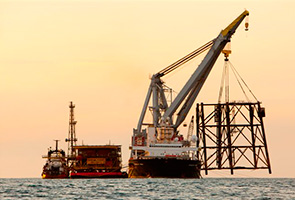
When an offshore platform comes to the end of its working life, it must be safely retired, or decommissioned. Removing thousands of tonnes of steel and concrete far offshore poses technical and environmental challenges. Listening to the concerns and views of others helps us to develop responsible solutions.
The Brent field, for example, was one of the first and largest oil and gas fields discovered in the North Sea. After 35 years, it is approaching the end of its life. We are now preparing for the safe decommissioning of its four platforms and their supporting structures, a task expected to take more than 10 years to complete.
Due to the complexity of the project, we recognised that we needed to engage others to help us take the right approach. We have been engaging with more than 150 different organisations including government bodies, academic institutions, fishing groups and non-governmental organisations since 2007. We contracted The Environment Council, an independent charitable organisation, to facilitate meetings to discuss and challenge our decommissioning plans and options. By the end of 2011, we had hosted 12 of these meetings, with more taking place in 2012. A panel of independent scientific experts reviews our technical studies and works to ensure our plans reflect input from these meetings.
Our plans for retirement of the four remaining platforms reflect what we have learned from similar projects, including the decommissioning of Brent Spar in the late 1990s. In 2011, we removed from our Indefatigable field in the North Sea almost 13,000 tonnes of equipment and steel from six platforms and supporting structures from our Indefatigable field in the North Sea. We shipped this material to the Wallsend Yard in Newcastle-upon-Tyne, UK, for reuse, recycling and safe disposal.



